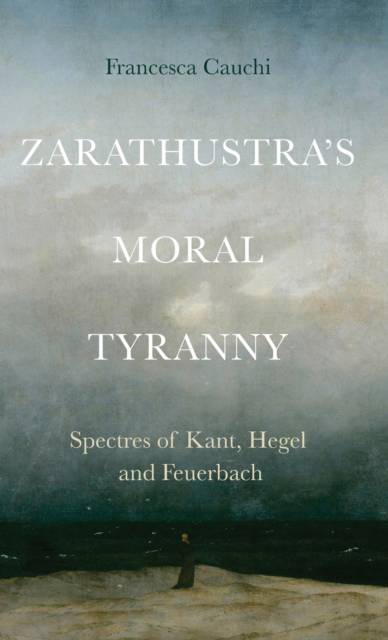
- Retrait gratuit dans votre magasin Club
- 7.000.000 titres dans notre catalogue
- Payer en toute sécurité
- Toujours un magasin près de chez vous
- Retrait gratuit dans votre magasin Club
- 7.000.000 titres dans notre catalogue
- Payer en toute sécurité
- Toujours un magasin près de chez vous
Zarathustra's Moral Tyranny
Spectres of Kant, Hegel and Feuerbach
Francesca Cauchi
Livre relié | Anglais
193,45 €
+ 386 points
Format
Description
In this reading of Nietzsche's most elusive work, Francesca Cauchi claims that Thus Spoke Zarathustra is a moral polemic, one grounded in its own set of moral values that posits its own moral goal - the self-overcoming of Christian morality through the creation of new values.
Spécifications
Parties prenantes
- Auteur(s) :
- Editeur:
Contenu
- Nombre de pages :
- 216
- Langue:
- Anglais
Caractéristiques
- EAN:
- 9781399504317
- Date de parution :
- 29-11-22
- Format:
- Livre relié
- Format numérique:
- Genaaid
- Dimensions :
- 140 mm x 216 mm
- Poids :
- 399 g







